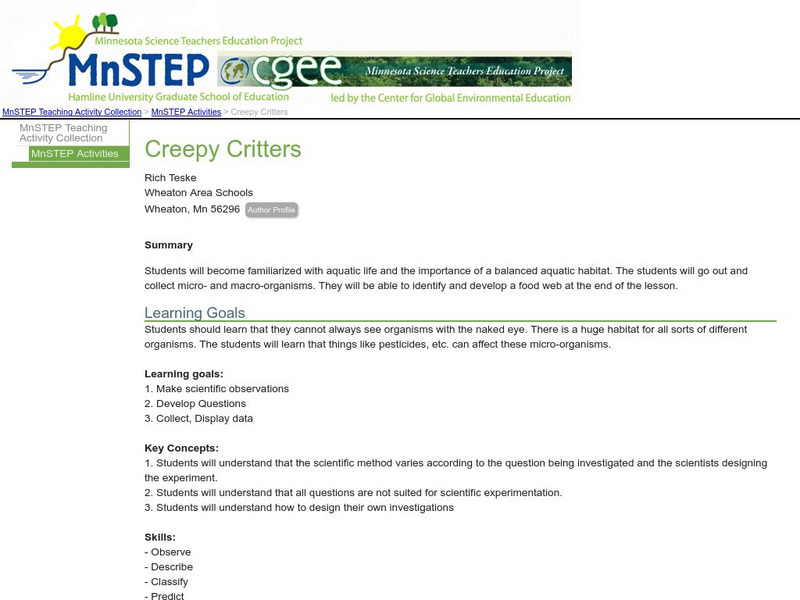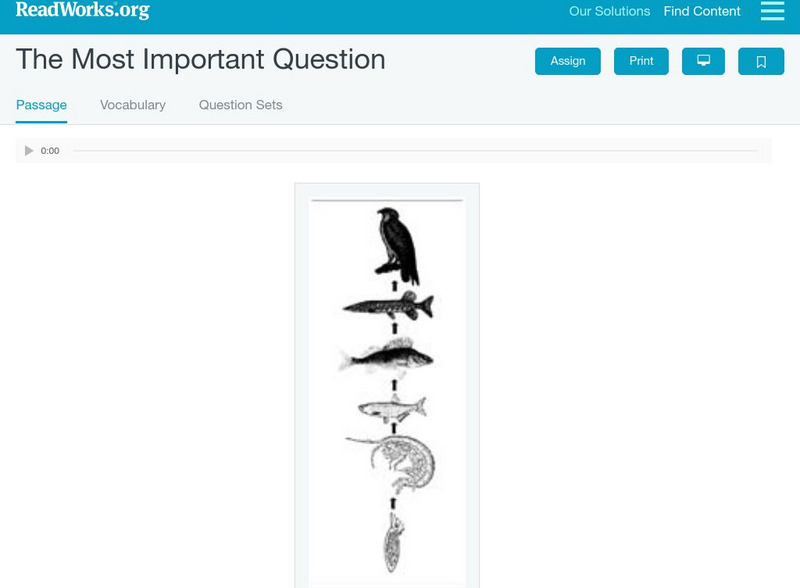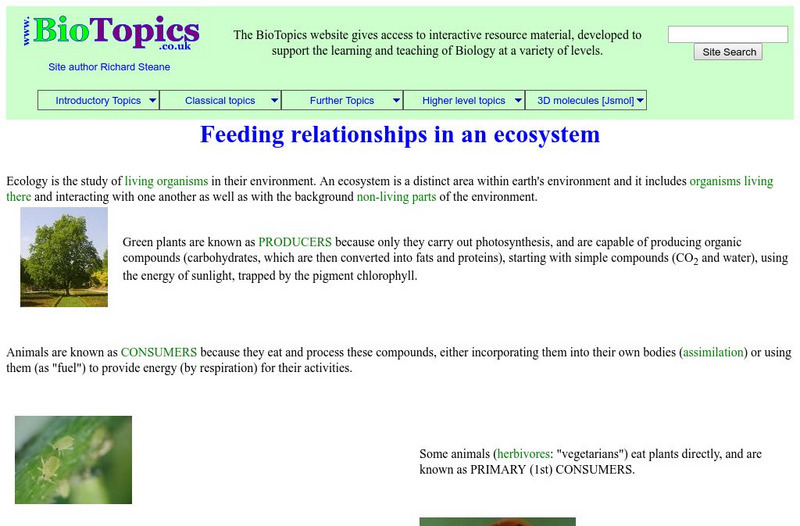Hi, what do you want to do?
Mocomi & Anibrain Digital Technologies
Mocomi: What Is an Ecosystem?
Learn about ecosystems, how they work, codependency, and food chains.
BBC
Bbc Schools: Living Things: Food Chains Quiz
How are animals and plants linked? What is the difference between a producer and consumer? How is a predator different from prey? Take this food chain quiz to find out the answers to these questions and more. Links allow you to convert...
Bio Topics
Bio Topics: Ecological Pyramids
A colorful tutorial about ecological pyramids. Read the information, and then check your understanding with some questions and answers about the topic.
E-learning for Kids
E Learning for Kids: Science: South Africa: How Do Organisms Get Their Energy?
Join Ellen on her trip to the Kaap De Goede Hoop in South Africa, and learn more about plants, animals, and energy.
Curated OER
National Park Service: Moon Crater Ecosystems Lesson Plan
This is a teacher's guide to a lesson on ecosystems. The objective is for the students to set up their own ecosystem and define the roles of producers, consumers and scavengers.
Georgia Department of Education
Ga Virtual Learning: Biology: Ecology I
A comprehensive ecology learning module where students assess the dependence of all organisms on one another and the flow of energy and matter within their ecosystems.
BiologyWise
Biology Wise: Understanding the Process of Biological Magnification
Biological magnification is the term used to described the increasing accumulation of substances in organisms as one looks at higher trophic levels in a food chain. When that substance is a toxin, such as a heavy metal or a pesticide,...
Science Education Resource Center at Carleton College
Serc: Creepy Critters
Students learn about aquatic life and the importance of a balanced aquatic habitat by collecting micro- and macro-organisms. By the end of the activity, they will be able to identify and develop a pond food web.
ClassFlow
Class Flow: Habitats
[Free Registration/Login Required] A 2nd grade unit on animal environments and habitats. Include web links for information on different land and water habitats, as well as a lesson on food chains.
Sophia Learning
Sophia: Autotrophs vs. Heterotrophs: Lesson 3
This lesson will review the difference between autotrophs and heterotrophs, and show how both play important roles in a food web. It is 3 of 4 in the series titled "Autotrophs vs. Heterotrophs."
Shmoop University
Shmoop: Ecosystem Energy Flow
Explains the processes by which energy flows through an ecosystem. Covers the meanings of key vocabulary, e.g., types of producers and consumers, trophic levels, food webs, and the energy pyramid.
CK-12 Foundation
Ck 12: Episd: Energy Pyramids
[Free Registration/Login may be required to access all resource tools.] Understand how energy flows within ecosystems through the use of energy pyramids.
CK-12 Foundation
Ck 12: Earth Science: Flow of Energy in Ecosystems
[Free Registration/Login may be required to access all resource tools.] Describes how energy is transfered from one organism to another.
Read Works
Read Works: The Most Important Question
[Free Registration/Login Required] A literary text about some animals who have to learn to share their space around the pond. A question sheet is available to help students build skills in reading comprehension.
Bill Nye
Bill Nye: Planaria Fishing
In this tutorial, Bill Nye explains how to catch planeria, small carnivorous worms that live in ponds. In addition, he explains their role in the environment.
CK-12 Foundation
Ck 12: Life Science: Producers
[Free Registration/Login may be required to access all resource tools.] Energy is the ability to do work. In organisms, this can be physical work, like walking or jumping, or it can be the work used to carry out the chemical processes in...
Bio Topics
Bio Topics: Feeding Relationships in an Ecosystem
This overview of feeding relationships illustrates to students the trophic levels of different organisms in an ecosystem. Hover the mouse over different terms to see their definitions.



















